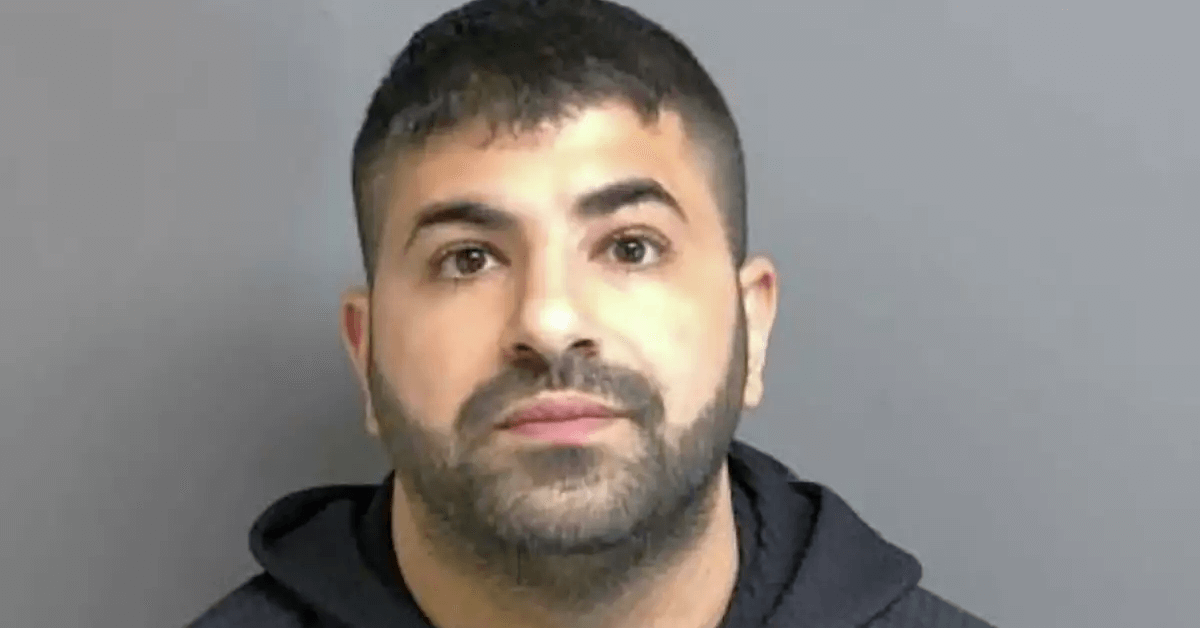Kalamazoo Man Charged in Deadly Shooting Stemming from Botched Cannabis Sale

In a somber update from Kalamazoo, 19-year-old Khymarus Pratt has been charged with the fatal shooting of 25-year-old Bader Mohamed Farwana. The incident, which occurred on the night of March 23rd, involved a tragic sequence of events stemming from what began as a purported drug deal.
According to police records, the Kalamazoo Department of Public Safety was called to a scene on the 900 block of Jackson Street near Sheldon Street around 11:26 p.m., following reports of a vehicle accident. Upon arrival, officers discovered Farwana unresponsive in the driver's seat of his car, initially presumed to be involved in a crash. However, it soon became apparent that Farwana had sustained a gunshot wound to the chest, leading to his death shortly after the discovery.
Investigations revealed that Farwana had intended to sell cannabis valued at $50 to an acquaintance from Snapchat, who directed him to Pratt's residence on Russell Street. Court documents suggest that Pratt never intended to buy the cannabis but instead planned to steal it. After a failed transaction attempt using CashApp, Farwana was lured back to the location with a promise of rectifying the payment issue.
When Farwana returned, Pratt allegedly approached his vehicle and shot him through the driver-side window, ultimately leading to Farwana's death. Pratt is reported to have collected the spent shell casing, boasted about the shooting to friends via messages, and disposed of the weapon by giving it to a friend for the night.
Khymarus Pratt was arraigned on charges of open murder and felony firearm. He is currently being held without bond and is expected back in court for further proceedings early in May.

Adding to the tragedy, Farwana, a father to a one-year-old daughter and a prospective professional martial artist, was remembered by his family for his strong Palestinian roots and ambitions. He had been pursuing studies in information technology and had expressed pride in his heritage, planning to fly the Palestinian flag in an upcoming fight.
The case has cast a somber light on the risks associated with illegal drug transactions and the devastating impact of gun violence on communities. A GoFundMe page established to support Farwana's family and daughter has raised significant contributions, reflecting the community's response to this tragic event.
Detroit Vape Shop Owner Nabbed at JFK Before Fleeing Country Following Fatal Explosion

Note to our readers: While this incident is not directly related to cannabis, it tangentially connects to the broader cannabis industry due to the involvement of Delta-8 THC products. The explosion in Clinton Township involved a facility that distributed vape pens, many of which were intended for use with Delta-8 THC, highlighting the sometimes blurred lines within the regulatory landscape of cannabinoid products.
Noor Noel Kestou, the owner of a suburban Detroit business where a fire and explosion resulted in the death of a young man, was arrested while attempting to leave the U.S. for Hong Kong. The incident, which occurred in Clinton Township, has led to serious criminal charges against Kestou.
On March 4th, a violent explosion at a building owned by Kestou's company, Goo, a distributor for the vaping industry, tragically ended the life of 19-year-old Turner Lee Salter. The explosion propelled a nitrous oxide canister a quarter of a mile through the air, striking Salter. At the time of the explosion, the building reportedly contained over 100,000 vape pens and had recently received a large shipment of butane canisters.
Authorities apprehended Kestou, 31, of Commerce Township, at John F. Kennedy International Airport on April 22nd as he was about to board a flight to Hong Kong on a one-way ticket. He was subsequently extradited to Michigan and arraigned on charges of involuntary manslaughter.
During a press briefing, Macomb County Prosecutor Peter Lucido explained that Kestou had been a suspect from the onset of the investigation due to his ownership of the premises involved in the incident. Lucido stated, "Anyone that owns a business and something like this happens has to be considered a suspect." The prosecutor also noted that involuntary manslaughter was the most severe charge that could be currently justified by the evidence.
The building, located in a 26,700-square-foot space, had been permitted as a retail location for a "smoke shop/vape store," according to records from the Clinton Township Building Department. Fire Chief Tim Duncan noted that while the exact cause of the fire remains undetermined, it is believed to have started in the building's southwest corner.
Following his arraignment, Kestou was released on a $500,000 bond. As part of his release conditions, he is required to wear a GPS monitoring device, and he has surrendered his passport. A probable cause hearing is scheduled for May 7th at the Clinton Township District Court.
Lions Labs Shifts Product Branding Following Legal Challenge from Tootsie Roll

Lansing-based Lions Labs, a prominent cannabis products manufacturer in Michigan, has recently announced the rebranding of its popular sugar-coated edible product following a legal challenge from Tootsie Roll Industries. The edible, formerly known as Potdots, will now be marketed under the new name, Potpots. This change also extends to the product's logo, packaging, and marketing materials.
The rebranding decision came after Tootsie Roll Industries, a Chicago-based candy corporation, issued a cease-and-desist letter to Lions Labs, claiming that the name Potdots infringed on their trademark for "Dots" gumdrops. The letter prompted a swift response from Lions Labs to avoid any potential legal disputes.
Ryan Ratzloff, CEO of Lion Labs, expressed his thoughts on the matter: "While we are disappointed in Tootsie Roll's position on this matter, we look forward to avoiding any dispute and are excited for our 1mg edible's new name: Potpots." He also extended his gratitude towards the company's customers, thanking them for their continued support through the transition.
This incident is part of a growing trend where companies outside the cannabis industry have taken legal action to protect their trademarks. Similar cases have been seen involving organizations like the Girl Scouts of America, Gorilla Glue Corp., the makers of Tapatio hot sauce, The Hershey Co., and The Wrigley Co., all of whom have successfully challenged cannabis companies over trademark issues.
Lima Township Trustees Face Lawsuit Over Blocking Cannabis Dispensary

Residents of Lima Township, Michigan, are currently embroiled in a legal battle against the township's trustees, alleging that the trustees actively obstructed the opening of a cannabis dispensary, thereby infringing on their constitutional rights. The group, Citizens of Lima for Cannabis, argues in their lawsuit that their 14th Amendment rights were violated by the trustees' refusal to engage with their proposals and initiatives over a period of three years.
According to a memorandum filed in federal court, the township's motion to dismiss the lawsuit overlooks the valid 14th Amendment claims raised by the residents. The plaintiffs contend that despite their efforts and compliance with Michigan's legal requirements for opening a dispensary, the trustees never formally addressed their initiative. The situation escalated when the group successfully gathered sufficient signatures to place their initiative on the May 2024 ballot, only to face further opposition as the trustees allegedly instructed their attorney to prevent the initiative's inclusion on the ballot.
The lawsuit, initiated in March by Citizens of Lima for Cannabis, points to a pattern of behavior by the trustees aimed at hindering the establishment of any cannabis dispensary in the area. The complaint highlights the support from the community and several local entrepreneurs and developers, including Andrew Sereno, CEO of Michigan-based Glacier Cannabis. Despite this backing, the trustees have reportedly thwarted the initiative, causing the community to miss out on estimated tax revenues of $28,000 to $59,000, based on financial data from other Michigan municipalities since 2021.
The township defended its actions in early April, seeking to have the lawsuit dismissed by arguing the claims were rooted in state law and only insinuated federal constitutional violations, thus questioning the federal court's jurisdiction over the matter. In response, the Citizens of Lima for Cannabis detailed in their brief a clear violation of Section 1983 of the U.S. Code, which pertains to civil rights infringements, by alleging that the trustees deliberately denied them the opportunity to discuss their proposal at public meetings.
Moreover, the residents' group suggests that if the federal court rules in favor of the township, they should be permitted to amend their complaint to include an additional Section 1983 claim. This would assert that the trustees not only failed to vote on the proposed ordinance but also actively blocked the initiative from the ballot, further violating the residents' rights.
As the case progresses, a spokesperson for the residents has confirmed they are awaiting a decision from the court on this pressing issue.
Michigan Dispensary Cannabis Leads to Indiana Felony Charge

Demar Garrison, a 45-year-old man, faces legal challenges after being arrested in La Porte County, Indiana, with a significant amount of cannabis that reportedly originated from Michigan. Garrison has been charged with a Level 5 felony for Dealing in Marijuana, which could result in a sentence of up to six years.
The incident unfolded on April 17th when Garrison, driving a rented vehicle westbound on Interstate 94, was pulled over by La Porte County Police just outside of Michigan City for tailgating. Officers noted an overpowering scent of air freshener from the vehicle, which they suspected was used to mask the smell of cannabis.
Further investigation revealed that Garrison had traveled from Racine, Wisconsin—where he resides—to Grand Rapids, Michigan, the day before the arrest. The court documents suggest that the cannabis found in his possession might have been obtained from a dispensary in Michigan, indicating a possible interstate transport of the substance.
During the search, law enforcement, aided by a K-9 unit, discovered nearly twelve one-pound packages of cannabis, over three pounds of THC cartridges, and THC edibles in the trunk of the car. All items were concealed within a large, odor-proof duffle bag, a type often associated with bulk cannabis smuggling.
While cannabis is legally purchasable in Michigan dispensaries, it remains illegal in Indiana, both for sale and possession. This incident highlights the legal discrepancies between states and the complications that arise from them, particularly affecting individuals who traverse state lines.
Michigan Court Convicts Man Using Cannabis to Lure and Abuse Young Sisters

A Sanford man was convicted on multiple felony charges for his predatory actions involving two 13-year-old sisters, including the use of cannabis to facilitate sexual abuse. The verdict was delivered on Wednesday following a three-day trial in the Midland County Circuit Court under Judge Stephen Carras.
Dwayne Acklin, 39, faced serious accusations, culminating in convictions for first-degree criminal sexual conduct (CSC), three counts of second-degree CSC, and two counts of delivering cannabis to minors. These charges detailed Acklin's exploitation of the minors during family visits, where he not only engaged in inappropriate sexual conduct but also provided them with cannabis, thereby using the substance as a means to commit his crimes.
The jury, which began deliberations on Tuesday afternoon, heard that Acklin leveraged the cannabis to manipulate and sexually abuse one of the sisters. This disturbing strategy played a central role in the case, highlighting the severe misuse of controlled substances to exploit vulnerable individuals.
Acklin's history of criminal behavior, including a 2010 conviction for larceny and a prior acquittal on charges related to child sexual abuse, contributed to his current status as a habitual offender. This designation may extend his sentencing by an additional 25%.
Following the jury's decision, Acklin was remanded to the Midland County Jail, where he awaits sentencing scheduled for July 3rd at 2 p.m. by Judge Carras.
The case was brought to light after the mother of one of the victims uncovered incriminating text messages from Acklin to her daughter, prompting immediate law enforcement intervention. Midland County Prosecutor J. Dee Brooks underscored the tragic and lasting emotional impact such crimes have on victims, while acknowledging the efforts of Assistant District Attorney Courtney Driscoll and Sheriff's Office Detective Scott Holzinger for their roles in securing the conviction.
Midland County Sheriff Myron Greene remarked on the swift action taken by deputies following the mother's alert, leading to Acklin's arrest and the subsequent legal proceedings that confirmed the grievous nature of his offenses.
This case serves as a sobering reminder of the dangers posed by the misuse of substances like cannabis in criminal acts against minors, emphasizing the need for vigilant community and legal oversight.


 Helpful Links
Helpful Links